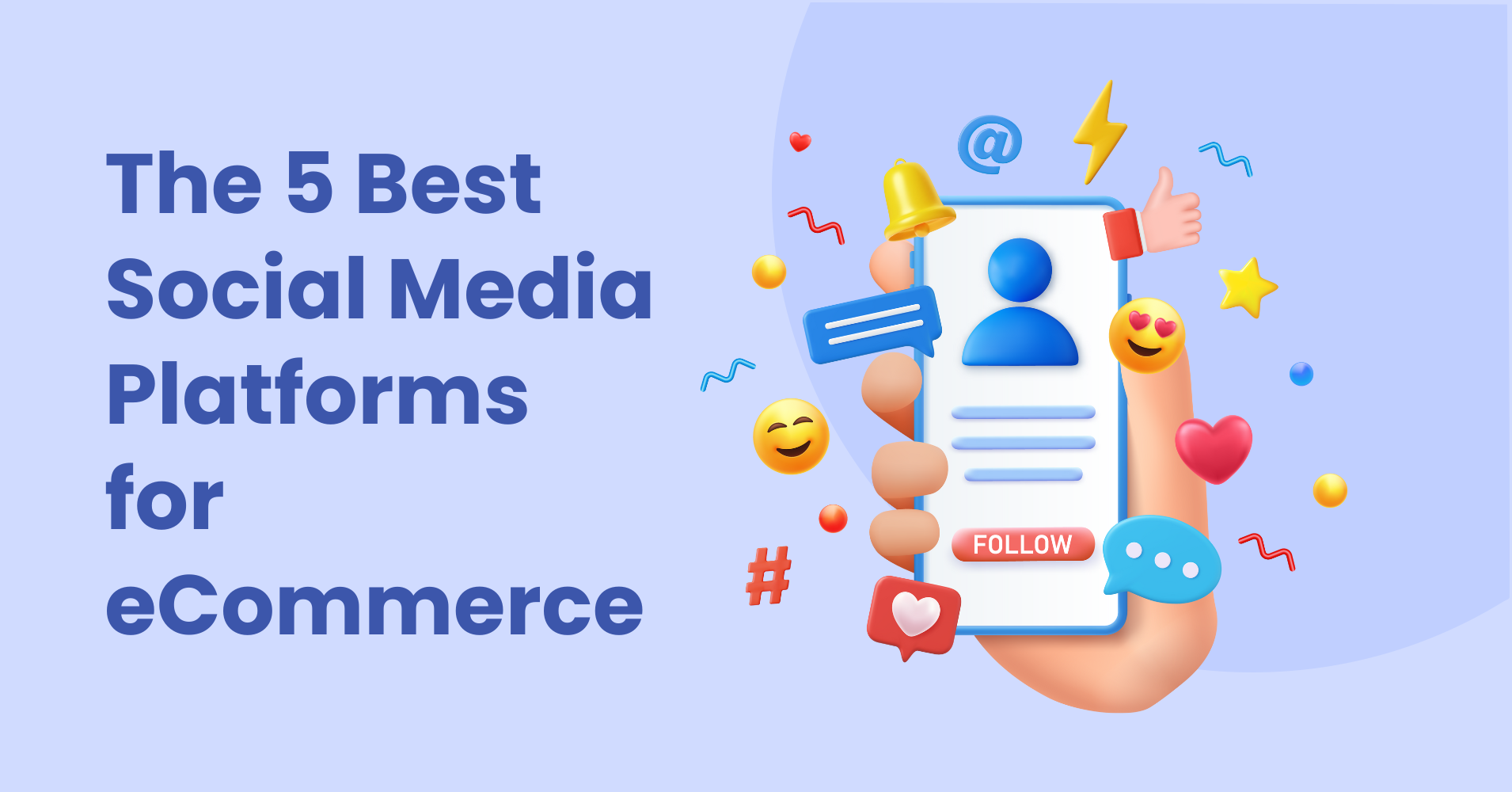For today’s eCommerce entrepreneurs, leveraging the right social media platforms is crucial for boosting visibility, engaging with customers, and driving sales. Each platform offers unique tools and audiences, making the selection process critical for maximizing return on investment.
From the visual appeal of Instagram to the community engagement of Facebook, and the rapid-fire trend-setting pace of TikTok, understanding the strengths and functionalities of each can transform your digital strategy.
In this article, we explore the top social media platforms that are currently revolutionizing eCommerce, providing insights on how to harness their potential to grow your business.
1. Facebook
Though it doesn’t have the novelty aspect that other more recently released social media apps boast, Facebook tops this list of the most popular social media platforms around the world and is one of the best social networks for eCommerce for good reason!
In terms of the number of monthly active users worldwide, Facebook ranks #1, with over 3 billion people using the social network each month, according to Statista data. While you’ll of course want to focus your business’s social media marketing efforts on the networks where your target audience is most active, Facebook’s vast user base is likely to provide plenty of opportunity to reach potential customers.
What’s more, with Facebook Shops, you can display and sell your products directly on the platform. This feature provides benefits like seamless customer access, personalized shopping experiences, and increased engagement through direct interactions and targeted advertising.
2. Instagram
Another must-use social network for online store owners, Instagram comes in second place when it comes to the social media platforms global online shoppers are most apt to use for their shopping needs, with a 2023 Statista study reporting that 20% of respondents chose Instagram as their preferred platform.
Instagram’s visually-driven nature allows you to showcase your products in a compelling and aesthetically pleasing manner. Its features, such as Instagram Stories, Shopping, and Reels, make it possible to create interactive and immersive content that drives engagement and sales.
The platform also supports targeted advertising and direct links to product pages, facilitating an easy and direct purchase process. Furthermore, Instagram’s large number of users and the ability to collaborate with influencers can broaden the reach and appeal of your eCommerce brand, significantly enhancing your market visibility and customer interaction.
3. YouTube
When you consider the ever-growing importance of sharing engaging video content for brands around the world and Google reporting that more than 90% of people find out about new brands or products via YouTube, it only makes sense to utilize the social media platform for your eCommerce business’s marketing strategy!
With YouTube, you have the chance to demonstrate products in action, provide detailed tutorials, and share customer testimonials, which help in building trust and credibility.
In addition, YouTube’s robust analytics tools also allow for detailed audience insights and targeted advertising to boost marketing efforts. It’s also worth noting that the platform’s integration with Google’s search capabilities can help increase visibility, driving traffic directly to your eCommerce site.
4. TikTok
Are you hoping to target Gen Z and millennial consumers with your online store’s offerings? If so, you’ll definitely want to harness the power of TikTok in your marketing strategy. TikTok has rapidly become a vital platform for eCommerce due to its immense popularity among younger demographics and its unique, trend-driven content.
The platform’s algorithm excels at pushing viral content, which means that your brand can achieve substantial visibility quickly. Plus, a Statista report determined that 55% of TikTok users in the US bought a product impulsively on the app in 2022, making TikTok the top social network when it comes to impulse purchases!
Furthermore, TikTok’s features like short videos, live streams, and the integration of TikTok Shopping empower businesses to engage users with creative, authentic storytelling and seamless product promotion. This interaction not only fosters a community around brands but also drives people to make impulse buys directly from the app.
5. Pinterest
Finally, Pinterest is another one of the best social media platforms for eCommerce due to its visual discovery and bookmarking tool structure, which encourages users to pin and organize products they love. This app is highly effective for driving traffic to online stores, with Pins directly linking back to websites.
What’s more, according to Pinterest, the top reason people use the platform is to discover new brands and products. Although the app is a hit across all age groups, Gen Z comprises 42% of Pinterest’s worldwide user base and is its fastest growing audience.
Features like Rich Pins provide extra detail directly on the Pin, such as price and stock availability, improving the user experience and facilitating sales. Pinterest also allows for targeted advertising, reaching potential buyers who are already in a shopping mindset, increasing the likelihood of converting into customers.






